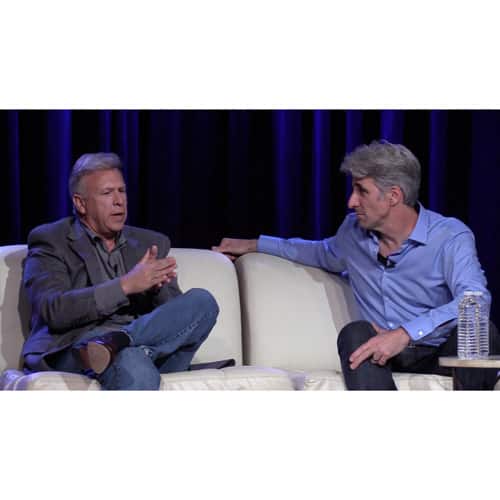Daring Fireball‘s John Gruber has posted the full video of The Talk Show Live from last week’s World Wide Developer Conference, where his guests were Apple senior vice presidents Phil Schiller and Craig Federighi. It’s a great interview, and I highly encourage you to watch it in its entirety, but there were six things in particular I learned.

iMore also posted a full transcript of the interview, and with each of the points below I supply keywords you can use to Find the portion I reference.
1.) What Really Happens When You Remove a Stock Apple App in iOS 10
In iOS 10 users will be able to remove stock Apple apps (from the home screen). That parenthetical bit is the important part, because while Apple announced the ability to remove stock apps, Craig Federighi explained that doing so does the following three things:
A.) Removes user data associated with that app.
B.) Removes that app from being accessible by other parts of the operating system. This means that if you removed, say, the Stocks app, Siri would no longer consider that app when interacting with users.
C.) The app itself remains on your system, meaning the application binary. If you went to the App Store to download it anew, you’re really just reactivating those hooks mentioned in point #2 and revealing the app on the home screen.
You can find Mr. Federighi’s comments by doing a Find for “this is true” on iMore‘s transcript. Phil Schiller added information you can find by searching for “mistakenly report.”
2.) Apple Designed App Store Ads with Small Developers in Mind
A concern I personally had when the rumor broke that Apple would add paid ads to App Store search results was the potential for big developers to thoroughly drown out small developers. It turns out Apple was ahead of us on that front, and according to Phil Schiller, the entire scheme was devised with small developers in mind. Here are some specific points Mr. Schiller made:
A.) There’s no minimum bid for buying ads.
B.) Relevance is weighted higher than bid price when displaying ads.
C.) Developers can glom on by buying keywords that are part of another company’s brand, but Apple believes this will benefit small developers more than larger ones.
D.) There’s no exclusivity allowed, meaning that no developer can monopolize a keyword regardless of how much they pay.
When combined with the announced news that search ads would be separate and limited to one ad per search, these points greatly allayed any fears I had about search ads in the App Store.
You can find Mr. Schiller’s comments by doing a Find for “sort of prior” on iMore‘s transcript
3.) macOS Sierra’s Auto-Unlock Feature Uses Speed of Light Tests to Verify Proximity
The auto-unlock feature coming in macOS Sierra uses speed-of-light tests to check the distance between the Mac you want to unlock and the device you are using to unlock it. This prevents someone from hijacking or relaying an identifying signal to unlock your Mac when you’re away from it.
If that check encounters any shenanigans, your Mac will insist you use your password. I like it!
You can find Mr. Federighi’s comments by doing a Find for “it’s a cont” on iMore‘s transcript.
Next: Deep Learning, Siri Domains, and Apple Watch Sandbagging
